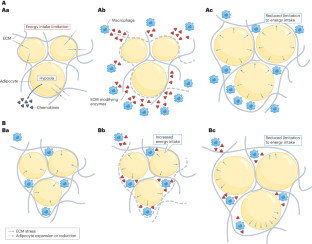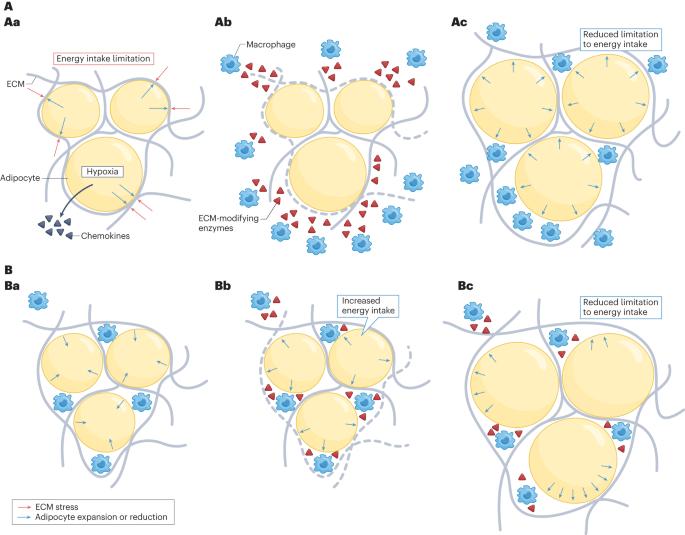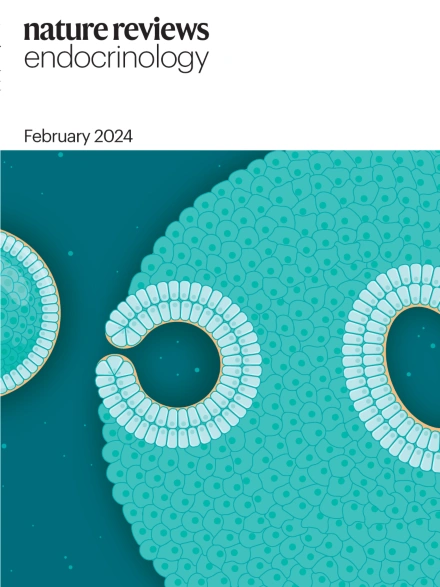Obesity-induced and weight-loss-induced physiological factors affecting weight regain
IF 40
1区 医学
Q1 ENDOCRINOLOGY & METABOLISM
引用次数: 0
Abstract
Weight regain after successful weight loss resulting from lifestyle interventions is a major challenge in the management of overweight and obesity. Knowledge of the causal mechanisms for weight regain can help researchers and clinicians to find effective strategies to tackle weight regain and reduce obesity-associated metabolic and cardiovascular complications. This Review summarizes the current understanding of a number of potential physiological mechanisms underlying weight regain after weight loss, including: the role of adipose tissue immune cells; hormonal and neuronal factors affecting hunger, satiety and reward; resting energy expenditure and adaptive thermogenesis; and lipid metabolism (lipolysis and lipid oxidation). We describe and discuss obesity-associated changes in these mechanisms, their persistence during weight loss and weight regain and their association with weight regain. Interventions to prevent or limit weight regain based on these factors, such as diet, exercise, pharmacotherapy and biomedical strategies, and current knowledge on the effectiveness of these interventions are also reviewed. Regaining weight after successful weight loss is a common problem for people with obesity. This Review discusses the potential physiological mechanisms underlying weight regain after weight loss and possible strategies to counter weight regain.


肥胖诱导和体重减轻诱导的影响体重恢复的生理因素。
生活方式干预成功减肥后的体重恢复是超重和肥胖管理的一大挑战。了解体重恢复的因果机制可以帮助研究人员和临床医生找到有效的策略来解决体重恢复问题,并减少与肥胖相关的代谢和心血管并发症。这篇综述总结了目前对减肥后体重恢复的一些潜在生理机制的理解,包括:脂肪组织免疫细胞的作用;影响饥饿、饱腹感和奖赏的激素和神经元因素;静息能量消耗与适应性产热;以及脂质代谢(脂解和脂质氧化)。我们描述并讨论了这些机制中与肥胖相关的变化,它们在减肥和体重恢复过程中的持续性,以及它们与体重恢复的关系。还回顾了基于这些因素预防或限制体重回升的干预措施,如饮食、锻炼、药物治疗和生物医学策略,以及目前对这些干预措施有效性的了解。
本文章由计算机程序翻译,如有差异,请以英文原文为准。
求助全文
约1分钟内获得全文
求助全文
来源期刊

Nature Reviews Endocrinology
医学-内分泌学与代谢
CiteScore
42.00
自引率
0.70%
发文量
158
审稿时长
6-12 weeks
期刊介绍:
Nature Reviews Endocrinology aspires to be the foremost platform for reviews and commentaries catering to the scientific communities it serves. The journal aims to publish articles characterized by authority, accessibility, and clarity, enhanced with easily understandable figures, tables, and other visual aids. The goal is to offer an unparalleled service to authors, referees, and readers, striving to maximize the usefulness and impact of each article. Nature Reviews Endocrinology publishes Research Highlights, Comments, News & Views, Reviews, Consensus Statements, and Perspectives relevant to researchers and clinicians in the fields of endocrinology and metabolism. Its broad scope ensures that the work it publishes reaches the widest possible audience.
 求助内容:
求助内容: 应助结果提醒方式:
应助结果提醒方式:


